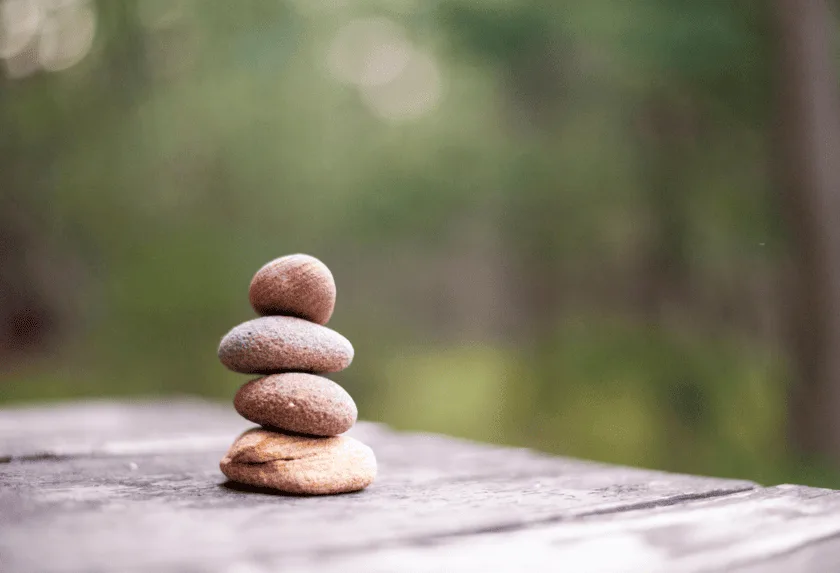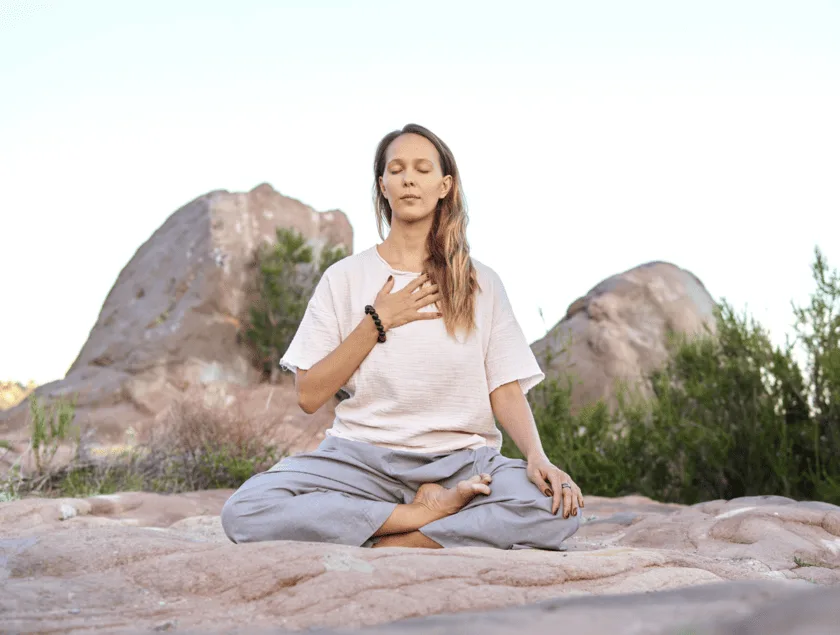What Are Spiritual Practices?
Definition and Purpose of Spiritual Practices
Spiritual practices are intentional activities or rituals that help individuals connect with their inner selves, a higher power, or the universe. These practices can take many forms, such as meditation, prayer, journaling, mindfulness, or spending time in nature. Their purpose is to foster a deeper sense of meaning, peace, and alignment in life, helping individuals navigate challenges with greater clarity and resilience.
At their core, spiritual practices are about cultivating awareness and presence. They encourage you to slow down, reflect, and tune into your emotions, thoughts, and surroundings. This process can lead to a greater understanding of your values, purpose, and connection to something larger than yourself.
Why They Matter for Overall Well-Being
In today’s fast-paced world, where stress and distractions are constant, spiritual practices offer a much-needed pause. They provide a space to recharge, reflect, and realign with what truly matters. Here’s why they are essential for your well-being:
- Mental Clarity: Practices like meditation and mindfulness help quiet the mind, reducing mental clutter and improving focus.
- Emotional Balance: They allow you to process emotions in a healthy way, fostering resilience and reducing anxiety or stress.
- Inner Peace: By connecting with your spiritual side, you can find a sense of calm and contentment, even in challenging times.
- Purpose and Direction: Spiritual practices often lead to a deeper understanding of your life’s purpose, helping you make decisions aligned with your values.
Moreover, spiritual practices are not about perfection or rigid routines. They are flexible and adaptable, making them accessible even for those with busy schedules. Whether it’s a five-minute breathing exercise or a walk in the park, these small moments of connection can have a profound impact on your overall well-being.
Starting Small: Easy Practices for Beginners
Breathing Exercises for Mindfulness
In the midst of a hectic day, taking a few moments to focus on your breath can be a powerful way to ground yourself. Mindful breathing is a simple yet effective practice that requires no special equipment or time commitment. Here’s how to get started:
- Find a quiet space: Even a few minutes in a calm environment can make a difference.
- Focus on your breath: Inhale deeply through your nose, hold for a moment, and exhale slowly through your mouth.
- Count your breaths: Try counting to four as you inhale, hold for four, and exhale for four. This technique, known as box breathing, can help calm your mind.
Remember, the goal isn’t to clear your mind completely but to bring your attention back to the present moment whenever it wanders. Even a few minutes of this practice can help reduce stress and improve focus.

Gratitude Journaling to Cultivate Positivity
Gratitude journaling is a simple yet transformative practice that can shift your mindset toward positivity. By focusing on what you’re thankful for, you train your brain to notice the good in your life, even on challenging days. Here’s how to begin:
- Set aside a few minutes daily: Choose a time that works for you, whether it’s in the morning or before bed.
- Write down three things you’re grateful for: They can be big or small—anything from a kind gesture to a beautiful sunset.
- Reflect on why: Take a moment to think about why these things matter to you. This deepens the sense of gratitude.
Over time, this practice can help you cultivate a more positive outlook and build resilience in the face of life’s ups and downs. It’s a small habit with the potential to create lasting change.
Meditation Made Simple
Basic Meditation Tips for Beginners
Starting a meditation practice doesn’t have to be complicated. Here are a few simple tips to help you begin:
- Breath Awareness: Sit comfortably, close your eyes, and focus on your natural breath. Notice the sensation of air entering and leaving your nostrils. If your mind wanders, gently bring your attention back to your breath.
- Body Scan: Lie down or sit in a relaxed position. Slowly bring your attention to each part of your body, starting from your toes and moving upward. Notice any tension and consciously release it.
- Guided Meditation: Use apps or online resources that offer guided sessions. These can be especially helpful for beginners, as they provide structure and direction.
- Mantra Meditation: Choose a word or phrase that resonates with you (e.g., “peace” or “calm”). Repeat it silently or aloud, allowing it to anchor your mind.
Tips to Overcome Common Challenges
Meditation can feel challenging at first, but these tips can help you stay consistent and make the process easier:
- Start Small: Begin with just 2-5 minutes a day. Gradually increase the duration as you become more comfortable.
- Create a Routine: Meditate at the same time each day, whether it’s in the morning, during lunch, or before bed. Consistency builds habit.
- Find a Quiet Space: Choose a calm, distraction-free area where you can focus. If noise is unavoidable, consider using earplugs or calming music.
- Be Patient with Yourself: It’s normal for your mind to wander. Instead of getting frustrated, gently guide your focus back to your practice.
- Use Reminders: Set alarms or sticky notes to remind yourself to meditate. Small prompts can help you stay on track.
- Experiment: Try different techniques to find what works best for you. Meditation is a personal practice, and there’s no one-size-fits-all approach.
“Meditation doesn’t mean silencing the mind, but realizing that we are something beyond the thoughts it creates.”
Connecting with Nature
In the rush of daily life, it’s easy to forget that we are part of something much larger—nature. Yet, even small moments spent outdoors can restore balance, reduce stress, and reconnect us with a deeper sense of peace. You don’t need a grand adventure or hours of free time to experience the benefits; simple, mindful interactions with the natural world can be woven seamlessly into your routine.
The Healing Power of the Outdoors
Nature isn’t just a backdrop—it’s a powerful ally for well-being. Studies show that spending time outside can:
- Lower stress and anxiety by reducing cortisol levels
- Boost mood and creativity through sensory stimulation
- Improve focus and mental clarity, especially after prolonged screen time
- Strengthen immunity with fresh air and sunlight (hello, vitamin D!)
Even urban dwellers can tap into these benefits. A quiet park, a tree-lined street, or even a balcony with potted plants can become sanctuaries of calm.
Simple Ways to Bring Nature Into Your Day
You don’t need to overhaul your schedule to invite more of the outdoors into your life. Here are effortless ways to start:

- Take a “micro-break” outside—step outside for just 5 minutes. Breathe deeply, feel the air, and notice the sky.
- Swap indoor workouts for a walk or stretch session in a nearby green space.
- Eat lunch outdoors when possible, even if it’s just on a bench or your doorstep.
- Keep a small plant nearby—a desk succulent or kitchen herbs add life to indoor spaces.
- Practice earthing—walk barefoot on grass or sand for a grounding effect.
“In every walk with nature, one receives far more than he seeks.” — John Muir
Mindful Moments in Nature
Turn ordinary outdoor time into a mindful ritual:
- Listen deeply—close your eyes and identify three natural sounds (birds, wind, rustling leaves).
- Observe seasonal changes—notice budding flowers, falling leaves, or shifting light.
- Carry a small notebook to jot down reflections or sketches inspired by your surroundings.
Remember, consistency matters more than duration. A daily 10-minute walk can be more transformative than a monthly hike if it becomes a nourishing habit.
Building a Daily Ritual
How to Create a Sustainable Spiritual Practice
Creating a sustainable spiritual practice doesn’t require hours of dedication or a complete lifestyle overhaul. Instead, it’s about finding small, meaningful moments that fit seamlessly into your daily routine. Start by identifying what resonates with you—whether it’s meditation, journaling, or simply pausing to breathe deeply. The key is consistency, not intensity. Even five minutes a day can make a difference if done regularly.
Here are a few tips to help you build a practice that sticks:
- Set a specific time: Choose a time of day that works best for you, whether it’s morning, during lunch, or before bed. Consistency in timing helps form a habit.
- Keep it simple: Avoid overcomplicating your practice. Start with one or two activities that feel manageable and meaningful.
- Be flexible: Life can be unpredictable, so allow your practice to adapt. If you miss a day, don’t stress—just start again the next day.
- Track your progress: Use a journal or app to note how your practice makes you feel. This can help you stay motivated and see the benefits over time.
Examples of Short, Daily Rituals
If you’re unsure where to begin, here are some simple, time-efficient rituals to incorporate into your day:
- Morning gratitude: Spend 2-3 minutes reflecting on three things you’re grateful for. This sets a positive tone for the day.
- Breath awareness: Take five deep breaths, focusing on the sensation of air entering and leaving your body. This can be done anywhere, anytime.
- Mindful walking: During a short walk, pay attention to your surroundings—the sounds, smells, and sensations. This helps ground you in the present moment.
- Evening reflection: Before bed, write down one thing you learned or appreciated about the day. This encourages mindfulness and self-awareness.
- Affirmation practice: Repeat a positive affirmation or mantra for a minute or two. Choose something that resonates with your current goals or challenges.
Remember, the goal is not perfection but presence. These small rituals can help you reconnect with yourself and cultivate a sense of peace, even on the busiest days.
Overcoming Common Obstacles
Dealing with Lack of Time or Motivation
One of the most common challenges in starting or maintaining a spiritual practice is feeling like there’s not enough time or lacking motivation. In today’s fast-paced world, it’s easy to prioritize everything else over self-care. However, spiritual practices don’t have to be time-consuming to be effective.
- Start small: Even five minutes a day can make a difference. Whether it’s a quick meditation or a moment of mindfulness, consistency matters more than duration.
- Integrate into your routine: Combine practices with daily activities, like mindful breathing while commuting or expressing gratitude during meals.
- Focus on motivation: Remind yourself why you started. Write down your intentions and revisit them when you feel stuck.
Remember, it’s okay to have days when motivation is low. The key is to acknowledge it without guilt and gently guide yourself back to your practice.
Embracing Imperfection and Progress Over Perfection
Many people abandon their spiritual journey because they feel they’re not doing it “right” or achieving quick results. The truth is, spiritual growth is a journey, not a destination. Embracing imperfection is essential.
- Let go of expectations: There’s no “perfect” way to meditate, pray, or practice mindfulness. What works for someone else might not work for you, and that’s okay.
- Celebrate small wins: Progress might be subtle—perhaps you feel calmer or more present. Recognize and honor these shifts.
- Accept setbacks: It’s natural to have off days or even weeks. Instead of seeing them as failures, view them as opportunities to learn and grow.
By focusing on progress over perfection, you create a sustainable and compassionate approach to your spiritual practice. It’s not about being flawless; it’s about showing up, again and again, with an open heart and mind.
Finding Your Spiritual Community
Embarking on a spiritual journey can feel deeply personal—but it doesn’t have to be a solitary one. Connection and support from like-minded individuals can transform your practice, offering encouragement, shared wisdom, and a sense of belonging. Whether you’re just beginning or seeking deeper engagement, finding your spiritual community can be the anchor that keeps you grounded and inspired.

Why Community Matters
Spirituality thrives in shared energy. Here’s why surrounding yourself with a supportive group can make all the difference:
- Accountability: A community helps you stay committed, especially on days when motivation wanes.
- Shared Learning: Others’ experiences can illuminate your path, offering insights you might not discover alone.
- Emotional Support: Spiritual growth isn’t always linear. A compassionate circle provides comfort during moments of doubt.
- Collective Energy: Group meditation, prayer, or discussion amplifies intention, making practices feel more potent.
“We are like islands in the sea, separate on the surface but connected in the deep.” — William James
How to Find Your Tribe
If you’re unsure where to start, here are practical ways to connect with others on a similar path:
- Local Groups: Check community centers, yoga studios, or spiritual centers for workshops, meditation circles, or discussion groups.
- Online Communities: Platforms like Facebook, Meetup, or Reddit host forums focused on mindfulness, meditation, or specific spiritual traditions.
- Retreats or Workshops: Immersive experiences create bonds quickly. Look for events aligned with your interests (e.g., silent retreats, sound healing).
- Volunteer: Serving alongside others in spiritually oriented organizations (e.g., mindfulness-based charities) fosters meaningful connections.
Remember: Your community doesn’t need to be large. Even one or two kindred spirits can offer profound support.
FAQs About Spiritual Communities
- What if I don’t resonate with any group’s beliefs?
- It’s okay to create your own space! Host casual gatherings or start an online group centered on open-minded exploration.
- How do I know if a group is right for me?
- Trust your intuition. A healthy community feels welcoming, respectful, and non-dogmatic. Attend a few sessions before committing.
- I’m introverted—can I still benefit?
- Absolutely. Many groups offer low-pressure ways to engage, like silent meditation or written discussions online.
As you step into this journey, remember: you’re not alone. The right community will meet you where you are—offering warmth, wisdom, and the gentle reminder that growth is always shared.
Reference:
- MentalHealth.com. (2025). How Natural Environments Help Reduce Stress. https://www.mentalhealth.com/library/natural-environments-for-stress-reduction
- Nagaria, T. D., Shinde, R. K., Shukla, S., Acharya, S., Acharya, N., & Jogdand, S. D. (2023). The Sunlight-Vitamin D Connection: Implications for Patient Outcomes in the Surgical Intensive Care Unit. Cureus, 15(10), e46819. https://doi.org/10.7759/cureus.46819
- Canadian Psychological Association. ““Psychology Works” Fact Sheet: Benefits of Nature Exposure – Canadian Psychological Association.” Canadian Psychological Association, 15 Apr. 2024. https://cpa.ca/psychology-works-fact-sheet-benefits-of-nature-exposure/





























